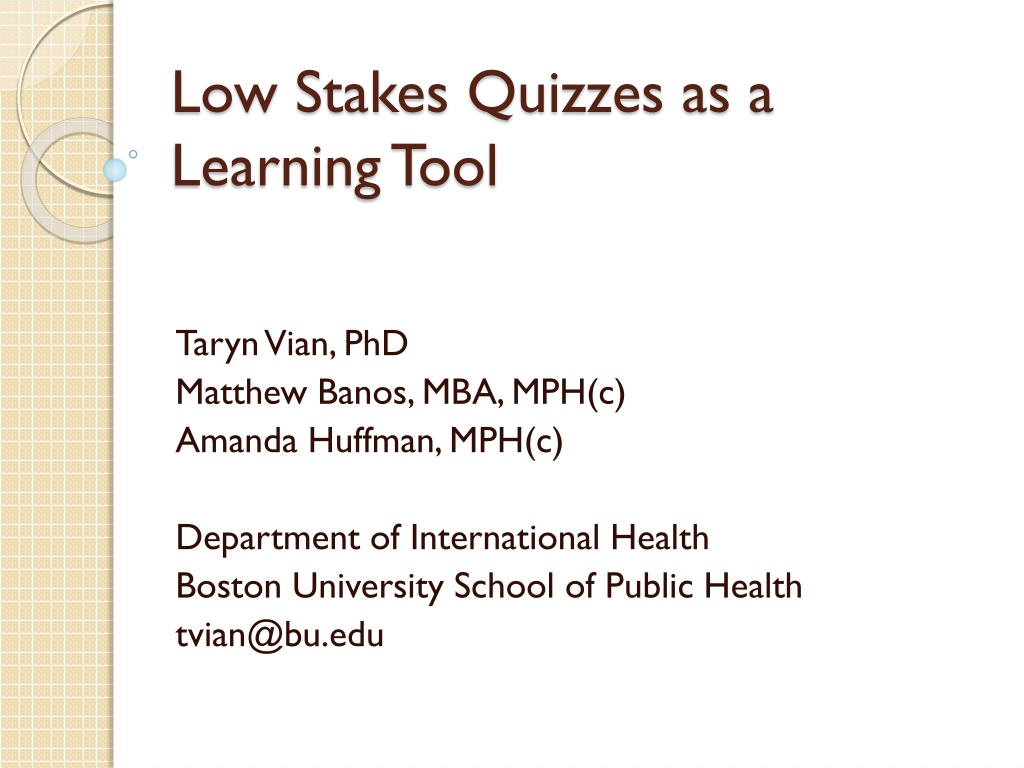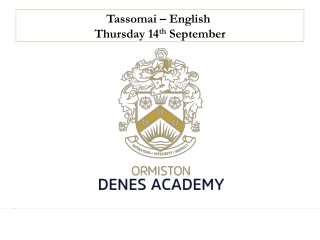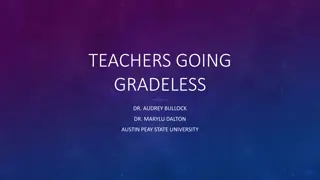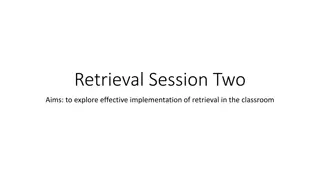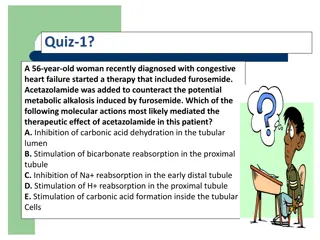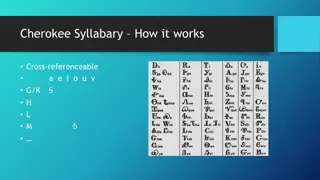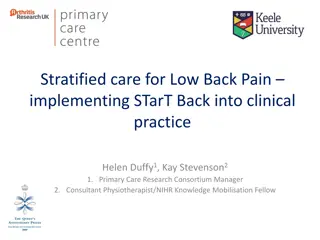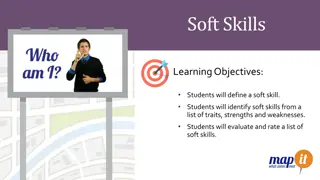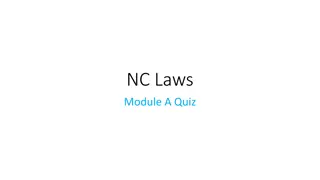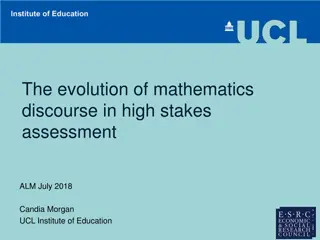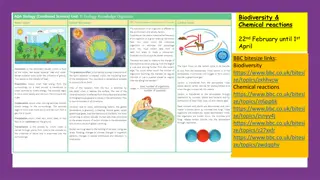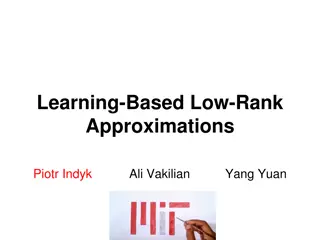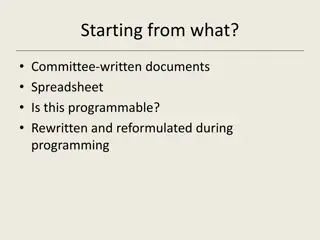Low Stakes Quizzes as a Learning Tool
Addressing the issue of missed foundational knowledge, this study implemented daily low-stakes quizzes as a learning tool in a university setting. The quizzes, focused on previous session content and readings, provided self-assessment opportunities and facilitated understanding of interconnected concepts. Results showed improved knowledge retention and learning outcomes across various levels of comprehension.
Download Presentation

Please find below an Image/Link to download the presentation.
The content on the website is provided AS IS for your information and personal use only. It may not be sold, licensed, or shared on other websites without obtaining consent from the author. Download presentation by click this link. If you encounter any issues during the download, it is possible that the publisher has removed the file from their server.
E N D
Presentation Transcript
Low Stakes Quizzes as a Learning Tool Taryn Vian, PhD Matthew Banos, MBA, MPH(c) Amanda Huffman, MPH(c) Department of International Health Boston University School of Public Health tvian@bu.edu
The problem Students sometimes skipped readings and missed foundational knowledge Each session introduced discrete tools and concepts, but students weren t seeing how they related Students wanted more opportunities for self-assessment before high stakes exam I wanted a low-stakes, low stress assessment tool, easy to score, quick
The solution Daily quiz, 10 minutes, 3-5 questions each Worth 10% of grade, full credit if took most quizzes Questions on previous session content and readings in prep for this session (i.e. connecting 2 sessions) Closed book, reviewed as a group immediately Scored by TA, returned same class
Results & benefits Fit time allotted (usually 5 min. with 5 min. to review answers); no student missed >1 TAs able to grade and return same day Score per quiz on average ranged from 71-100% (2 over 90%, 4 in 80-89% range, 2 in 70-79% range; 2 quizzes used for mid-term assessment, and a post-test with different scoring) Types of learning: foundational knowledge, application, integration, learning to learn
Foundational Knowledge Once we had a concept on a quiz, if I didn t remember its meaning before, I remembered it after. For example, I could not remember that starting a budget from scratch was called zero-based budgeting but since we had it on the quiz I haven t forgotten that term.
Foundational Knowledge I think that foundational learning is promoted through the weekly quizzes either way, students get to learn it: in preparing for the class, in class, in preparing for the quiz the following week, or in the corrections after the quiz. Sample question: 2. Which of the following are examples of a variable cost: Syringes b. Rent Electricity d. Buildings & grounds a. c.
Application Application was tested in both our in-class quizzes and weekly assignments. I think that both were challenging but fair and helped to continually check our progress and understanding of the material. Sample Question: Mary manages ARHP s petty cash (imprest) fund to pay for transport and supplies. The fund has a $100 fixed balance. The annual budget for transport expenses is $400 and the budget for supplies is $800. Mary now has $20 in cash and $80 in petty cash vouchers (receipts). It is time to replenish the account. How much cash should she request?
Integration The weekly quizzes were a simple method to reinforce topics covered in the previous lecture or the readings. I was forced to constantly revisit my notes, the PowerPoints, etc. from class, rather than forgetting about the topics until the exam. Sample Question: Step down cost analysis is one way of calculating unit costs for a hospital. Using patient-day equivalents is another way to get unit cost information. Describe 1 strength and 1 limitation of each of these alternative approaches.
Learning to Learn The weekly quizzes and assignments challenged my typical procrastinating-self to stay on top of the concepts we were covering. I definitely feel this course has made me a better student, both in practice and by igniting a new confidence. Former student assisting Basotho health staff with financial management
Limitations Students arriving late to class Takes away from time for lecture, other activities Some questions were ambiguous or contained mistakes
Conclusion In-class quizzes can help promote significant learning: foundational, application, integration, and learning to learn Even when scores don t count, most students took the quizzes seriously Quizzes provided a two-way window on learning: self-assessment opportunity to students, and continuous feedback to the instructor
